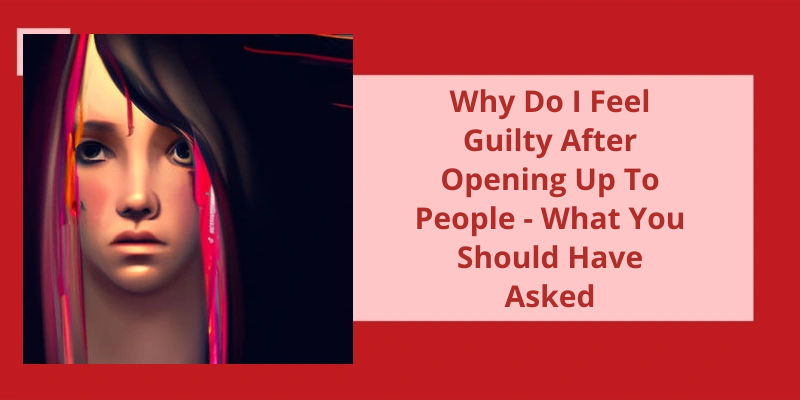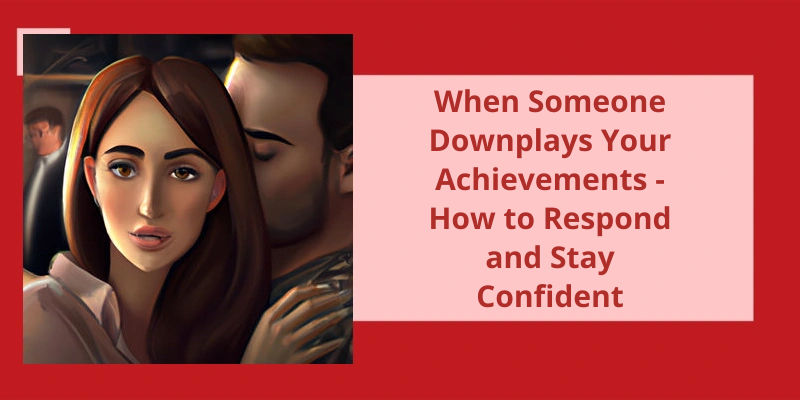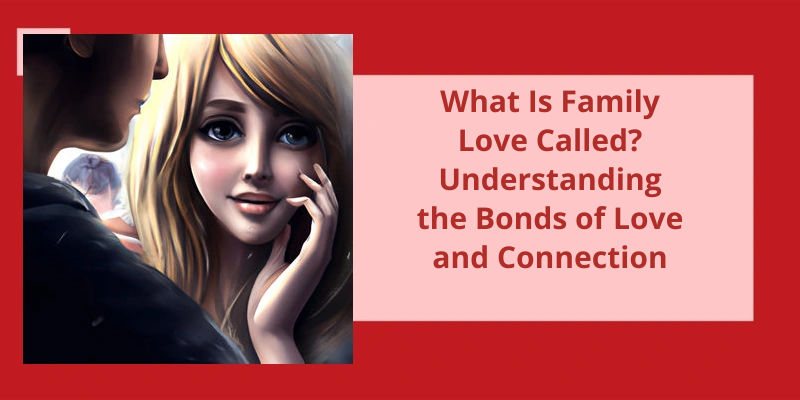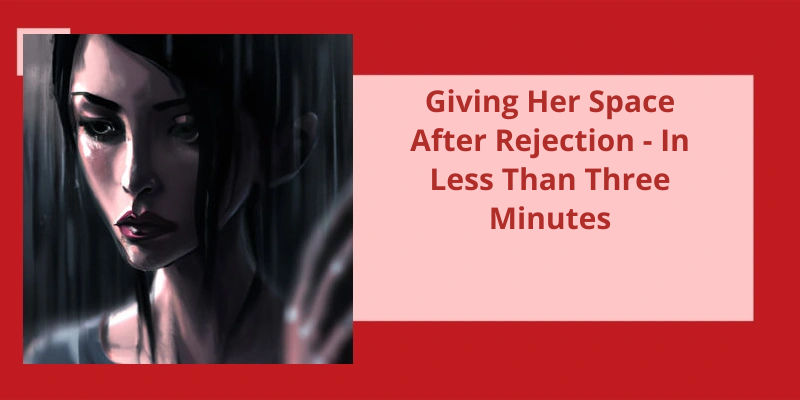In our journey through life, we often find ourselves seeking connections with others, craving that deep sense of understanding and acceptance. We long to open up to people, to share our innermost thoughts and emotions, hoping to alleviate the burdens that weigh heavily on our hearts. However, there’s a curious phenomenon that occurs once we lay bare our vulnerabilities, a nagging feeling of guilt that creeps in and taints our moments of raw honesty. Why do we feel guilty after opening up to people? What’s the source of this remorse that follows our cathartic release? Perhaps it isn’t the act of opening up itself that leads to guilt, but rather the unspoken expectations and judgments that intertwine with our disclosures. This blog aims to delve deeper into the reasons behind this perplexing emotional response and uncover the hidden questions you may not have thought to ask, providing insights and guidance to navigate the complex landscape of vulnerability and self-expression. So join us on this introspective journey as we explore the intricacies of guilt, seeking to unravel the complexities of our human nature and find solace in the growth and understanding that arise from these meaningful connections.
Why Do I Feel Guilty About Things That Don’t Matter?
Why do I feel guilty after opening up to people? This is a common question many individuals ask themselves, especially when they find themselves feeling guilty for sharing their thoughts and emotions with others. The answer to this question can often be traced back to ones past experiences and upbringing.
We all have an “inner critic”, that voice inside our heads that constantly judges and evaluates our actions and behaviors. However, for some individuals, this inner critic is much louder and harsher than for others. This internal voice and the stories it tells have a lot to do with the messages we received during our childhood and upbringing.
If you grew up in an environment where expressing vulnerability was discouraged or where your feelings were dismissed or invalidated, it’s likely that your inner critic developed to protect you from potential rejection or ridicule. As a result, when you open up to others and expose your true thoughts and emotions, your inner critic may surface to remind you of past negative experiences and to convince you that sharing your true self is a mistake.
It’s important to recognize that feeling guilty for expressing yourself is a common experience, particularly for those who’ve been conditioned to believe that their feelings are unworthy or burdensome. Acknowledging the influence of your past and the messages you received in shaping this guilt can help you challenge and reframe these negative beliefs. Remember, opening up to others is an essential part of building deep connections and fostering emotional well-being. By addressing and overcoming this guilt, you can create a safe space for yourself to be vulnerable and find solace in the support of others.
The Impact of Guilt on Mental Health and Well-Being
- The impact of guilt on mental health and well-being
- Understanding the connection between guilt and mental health issues
- How guilt can contribute to the development of anxiety and depression
- The negative effects of excessive guilt on self-esteem and self-worth
- Ways to manage and cope with guilt in order to improve mental well-being
- Seeking professional help and therapy for guilt-related mental health concerns
- The importance of forgiveness and self-compassion in overcoming guilt
- Strategies for practicing self-forgiveness and letting go of harmful guilt
- The role of societal and cultural factors in shaping guilt and it’s impact on mental health
- Supporting loved ones dealing with guilt and mental health challenges
This internal conflict isn’t uncommon, as the pressure to conform to societal expectations can create a deep-seated sense of guilt for simply being oneself. It’s important to recognize that guilt, in this context, is often unfounded and unreasonable, yet it’s persistence can be overwhelming. Understanding the underlying reasons behind this guilt and learning to challenge these cultural norms can help alleviate this unnecessary burden.
Why Do I Feel Guilty About Things I Shouldn’t Be?
The feeling of guilt is often rooted in cultural norms and societal expectations. We live in a world where certain actions, thoughts, or desires are deemed appropriate or inappropriate based on prevailing beliefs. When our own personal convictions diverge from these norms, we may experience guilt, even if we don’t actually support or share the common beliefs that society holds.
Opening up to people and sharing our innermost thoughts and emotions can be a vulnerable experience. It requires us to expose our true selves, which can feel uncomfortable or even wrong in a society that values privacy and emotional restraint. We may internalize the idea that opening up is a sign of weakness or that it burdens others with our problems. Consequently, feelings of guilt may arise.
Furthermore, societal expectations often dictate that we should be able to handle our own issues without burdening others. We might feel guilty for seeking support or expressing our struggles, as if we’re violating the unspoken rule of self-sufficiency imposed by society. This mentality can lead to guilt, self-blame, and a sense of inadequacy when we do reach out to others.
We may worry about how others will perceive us or fear being labeled as emotional, weak, or attention-seeking. These concerns promote a sense of guilt for simply being honest about our feelings and needs.
To navigate through these feelings of guilt, it’s essential to challenge the societal norms and beliefs that trigger this emotional response. Recognize that opening up is a courageous act of vulnerability, not a weakness. Surround yourself with supportive individuals who’ll validate your experiences and provide unconditional acceptance. Engage in self-reflection to identify and challenge any internalized notions that fuel guilt. Remember, it’s okay to prioritize your emotional well-being and seek support when needed. By reframing the guilt and embracing your authenticity, you can foster healthier connections and live a more fulfilled life.
The Role of Cultural and Societal Pressures in Shaping Feelings of Guilt
Feeling guilty after opening up to people can be influenced by various factors, including cultural and societal pressures. These pressures can shape our beliefs and expectations about vulnerability and emotional expression.
In some cultures, there may be a strong emphasis on personal privacy and self-reliance, leading individuals to feel guilty for revealing their inner thoughts and emotions. They may worry about burdening others or appearing weak.
Additionally, societal norms and gender stereotypes often play a role in how people perceive vulnerability. Men, for example, may feel guilty for expressing emotions due to societal expectations of emotional stoicism.
Understanding the impact of cultural and societal pressures can help individuals navigate their feelings of guilt when opening up to others. It’s important to recognize that vulnerability isn’t inherently shameful or weak, and that seeking support and connection is a natural part of being human.
Guilt can weigh heavily on our hearts and minds, but it doesn’t have to consume us. By taking the time to identify the underlying emotions fueling our guilt, forgiving ourselves, and changing our negative self-talk, we can begin to release this unnecessary burden. Seeking objectivity, taking action, and learning from our mistakes are also valuable steps in breaking free from the cycle of guilt.
How Do I Stop Feeling Unnecessary Guilt?
Opening up to people can be a vulnerable and courageous act, allowing ourselves to be seen and heard. However, sometimes, instead of feeling relief and connection, we may find ourselves burdened with unnecessary guilt. So how do we stop feeling this unwarranted guilt?
First, it’s important to identify our feelings and dig deeper into the source of our guilt. Often, guilt acts as a mask for underlying emotions such as inadequacy, low self-esteem, jealousy, or even resentment. By recognizing these primary emotions, we can address them directly and work towards resolving them.
Forgiving ourselves is another crucial step in overcoming unnecessary guilt. We’re all human, and we make mistakes. Accepting that we aren’t perfect and allowing ourselves the grace to move forward is essential for our emotional well-being.
Our self-talk plays a significant role in the way we perceive ourselves and our actions. Replace negative and self-deprecating thoughts with self-compassion and understanding. Challenge the guilt-inducing thoughts by reminding yourself of your worth and intentions.
Seeking objectivity can provide a fresh perspective on the situation. Talking to a trusted friend or therapist who can provide unbiased input can help us separate reality from our distorted perceptions. They can help us understand if our guilt is justified or if it’s stemming from our own unrealistic expectations.
Taking action is an effective way to overcome guilt. Instead of dwelling on past actions, focus on what you can do to rectify the situation or make amends. By actively working towards a solution, you regain a sense of control and empower yourself to move forward.
Finally, view mistakes as opportunities for growth and learning. Understand that we all make errors, and it’s through these experiences that we develop resilience and wisdom. Rather than beating yourself up over past actions, reflect on the lessons learned and strive to do better in the future.
By implementing these strategies, we can let go of unnecessary guilt and start practicing self-acceptance and acceptance of others. Remember, opening up is a courageous act, and you deserve compassion and understanding, both from yourself and from those around you.
How to Set Healthy Boundaries to Avoid Feeling Guilty
- Start by recognizing your own needs and priorities.
- Understand that setting boundaries is necessary for self-care and maintaining your well-being.
- Identify the areas in your life where you need to establish boundaries.
- Communicate your boundaries clearly and assertively to others.
- Be firm in enforcing your boundaries and don’t feel guilty for prioritizing yourself.
- Learn to say “no” when necessary and avoid overcommitting.
- Practice self-compassion and remind yourself that it’s okay to take care of yourself.
- Seek support from friends, family, or a therapist to help you maintain healthy boundaries.
- Avoid comparing yourself to others and focus on what’s right for you.
- Regularly evaluate and adjust your boundaries as needed to ensure they align with your evolving needs.
Source: 6 Personal Growth Tips to Stop Feeling Guilty | Tony Robbins
Gossiping, whether intentional or not, can often lead to feelings of guilt. It may arise from a moment of frustration or a lapse in judgment during a social interaction. Sharing negative information or divulging confidential details can leave a lingering sense of remorse. Understanding the underlying reasons behind our guilty conscience when talking about someone is key to addressing this common phenomenon.
Why Do I Feel Guilty for Talking About Someone?
Have you ever found yourself caught in the cycle of guilt after opening up to someone about another person? It can be a perplexing and unnerving feeling, one that often leaves us questioning our actions and even our own integrity. You might be left wondering, why do I feel guilty for talking about someone?
One possible explanation for this sense of guilt is rooted in our deeply ingrained social values and moral compass. From an early age, we’re taught the importance of treating others with kindness, respect, and empathy. When we deviate from this ideal and engage in gossip or negative talk about someone, it can trigger our internal alarm system, causing guilt to manifest.
Furthermore, opening up about someone, especially in a negative light, can also elicit feelings of shame. We may feel ashamed for betraying someones trust or for participating in behavior that goes against our own personal values. This shame amplifies the sense of guilt we experience and can be difficult to shake off.
In addition, guilt may arise from the fear of potential consequences. We might worry that our words could cause harm to the person we discussed, damage relationships, or even create a negative impression of ourselves in the eyes of others. This fear of repercussions can intensify our guilt and make us question the true intention behind our actions.
Another important aspect to consider is the impact of empathy and compassion. As social beings, we’re wired to connect and understand others. When we speak negatively about someone, it can be in direct conflict with our innate desire to support and uplift others. This internal conflict can result in a deep sense of guilt and internal strife.
It’s crucial to reflect on our actions and understand the motives behind them. Was it out of genuine concern for the person involved? Or was it driven by frustration or a desire for social validation? By unpacking our own intentions, we can gain insight into our guilt and develop strategies to mitigate it in the future.
However, not being able to open up can also hinder our relationships and emotional well-being. It’s important to understand the reasons behind this discomfort and find ways to navigate through it. In this article, we will explore some common reasons why people feel uncomfortable opening up and provide helpful strategies to overcome these barriers.
Why Do I Feel Uncomfortable Opening Up to People?
“Why Do I Feel Guilty After Opening Up to People – What You Should Have Asked – [Blog Name]”
Opening up to others can be an overwhelming experience for many individuals, causing deep-seated discomfort and even guilt. This phenomenon is often rooted in numerous factors, unique to each person. One common reason for feeling uncomfortable is past experiences of emotional turmoil or hurt inflicted by others. The scars left behind from these instances can leave individuals wary of opening up, fearing that history may repeat itself.
Furthermore, it isn’t uncommon for individuals to carry unresolved trauma that continues to impact their lives. Navigating this treacherous territory makes it difficult to trust others with their vulnerability. The thought of exposing these wounds to someone else can evoke overwhelming emotions, leading to feelings of discomfort and guilt.
In addition, the fear of judgment and rejection can play a significant role in hindering ones ability to open up. We crave connection and understanding, ultimately forming deeper bonds with others. But the fear of being judged or misunderstood can outweigh these desires. As a result, we construct emotional barriers and keep our feelings hidden, hoping to avoid any potential repercussions that may arise from being candid.
Moreover, the people we care about the most can cause us the most anxiety when it comes to opening up. These are the individuals whose opinions matter the most to us, making acceptance and understanding paramount. However, the possibility of disappointing or burdening our loved ones can create an overwhelming sense of guilt. We worry about being a source of inconvenience or emotional strain, which can amplify the discomfort associated with sharing our innermost thoughts and emotions.
Ultimately, the existence of these walls is a protective mechanism that shields us from potential harm. By limiting our vulnerability, we hope to avoid feeling exposed or emotionally overwhelmed. However, it’s crucial to recognize that opening up can be a catalyst for personal growth and fostering meaningful connections. Understanding the reasons behind these uncomfortable feelings and working towards overcoming them is an essential step towards a more fulfilling and authentic life.
The Role of Childhood Experiences in Shaping Our Ability to Open Up to Others.
Our childhood experiences play a significant role in shaping our ability to open up to others. The way we were raised, the relationships we’d with our parents or caregivers, and the environment we grew up in can all impact how comfortable we feel being vulnerable and sharing our emotions with others.
If we’d negative experiences in our early years, such as growing up in a household where emotions weren’t valued or acknowledged, we may have learned to hide our true feelings or fear judgment and rejection for expressing ourselves. This can lead to feelings of guilt when we do open up, as if we’re breaking a long-standing pattern or going against what we were taught.
On the other hand, positive childhood experiences that fostered a sense of trust, security, and emotional support can make it easier for us to open up to others without feeling guilty. When we grew up in an environment where our emotions were validated and respected, we’re more likely to believe that it’s safe to share our thoughts and feelings with others.
Understanding the role of our childhood experiences in shaping our ability to open up can help us navigate our feelings of guilt. It allows us to recognize that guilt is often a result of old conditioning and can be challenged and replaced with healthier beliefs. By actively working on building self-compassion and seeking supportive relationships, we can gradually overcome the guilt and develop healthier ways of opening up to people.
Conclusion
In conclusion, the experience of feeling guilty after opening up to others can be complex and multi-faceted. It may stem from underlying fears of judgment, rejection, or the vulnerability that comes with sharing personal thoughts and emotions. It’s essential to recognize that this guilt doesn’t necessarily reflect any wrongdoing on your part, but rather a reflection of society's often discouraging attitude towards emotional expression. Instead of dwelling on guilt, it’s crucial to focus on self-compassion, understanding that opening up is a brave and courageous act that can lead to meaningful connections and personal growth. By cultivating a supportive network and practicing self-care, you can gradually overcome these feelings of guilt and embrace the healing power of vulnerability.






